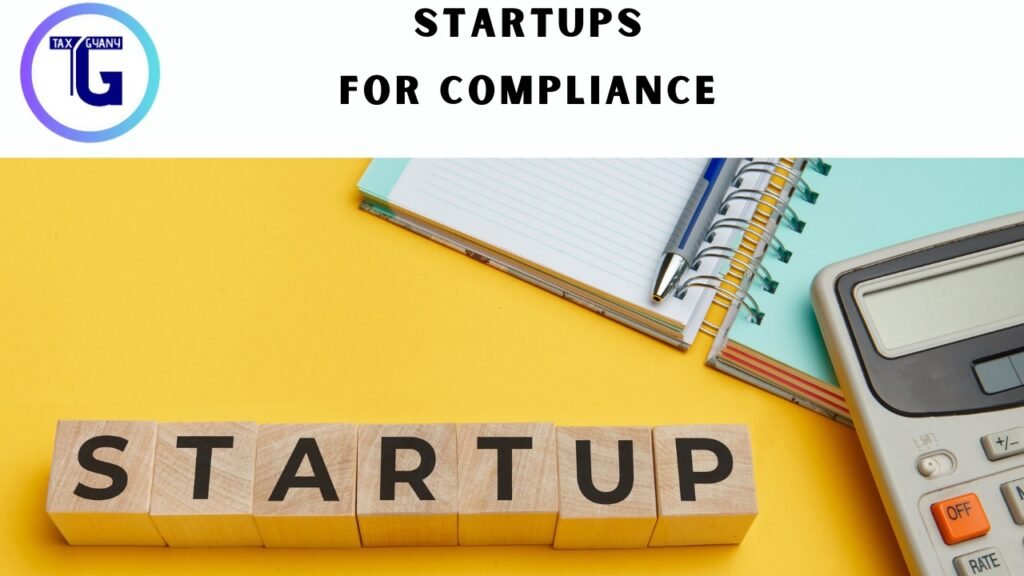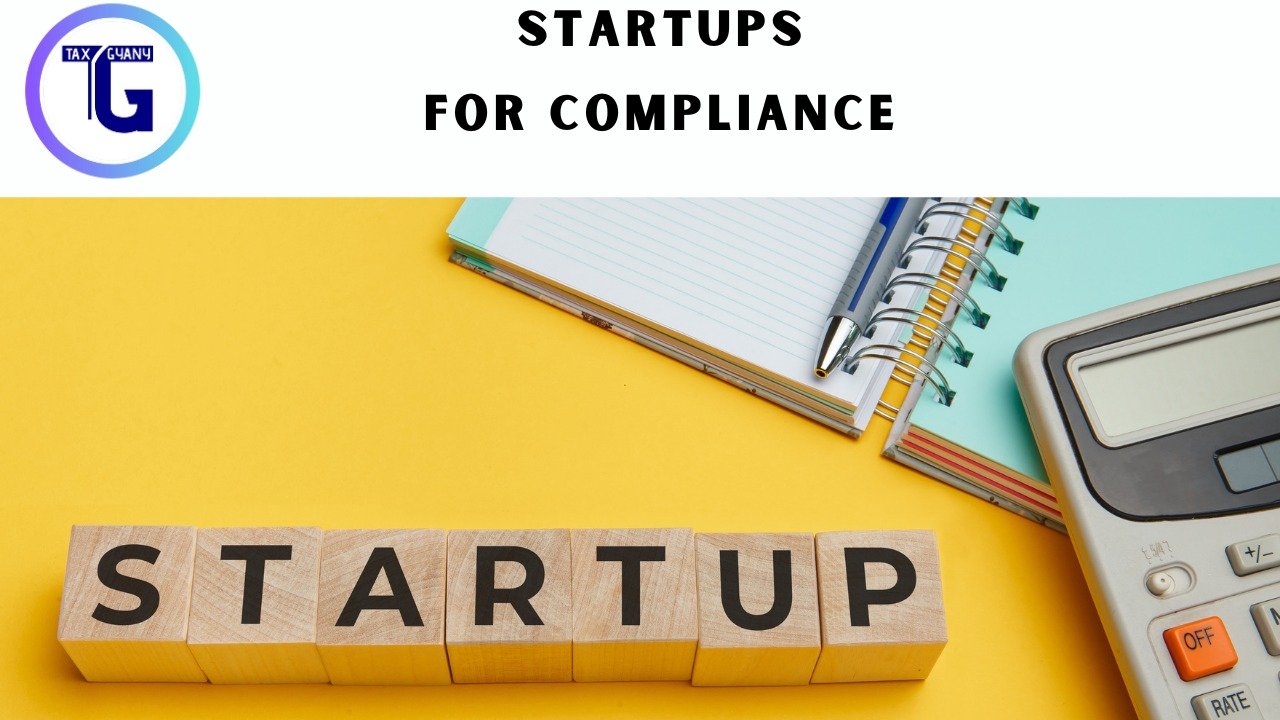- Best Startups FOR COMPLIANCE Startups FOR COMPLIANCE In the dynamic landscape of business, startups face a multitude of challenges, especially when it comes to navigating complex regulatory frameworks and ensuring compliance. Fortunately, the integration of Artificial Intelligence (AI) has emerged as a game-changer for startups, offering innovative solutions to streamline processes, enhance efficiency, and mitigate the risks associated with compliance.
- Startups, often characterised by agility and innovation, are now leveraging AI to revolutionise the way they approach compliance and regulation. Best Startups FOR COMPLIANCE One of the key advantages lies in the ability of AI to process vast amounts of data at unprecedented speeds, significantly reducing the time and resources required for compliance tasks. This is particularly crucial for startups operating in industries with stringent regulatory requirements.

STARTUP: Best Startups FOR COMPLIANCE
Startups that prioritize compliance from the outset are better positioned for sustainable growth and success. Compliance with regulations, laws, and industry standards is crucial for startups to build trust with customers, investors, and stakeholders, and to avoid legal and financial risks. Here are some key areas where startups can focus on compliance:
- Legal Structure: Choosing the right legal structure, such as a corporation, limited liability company (LLC), or partnership, and registering the business with the appropriate authorities is essential for compliance with corporate laws and regulations.
- Tax Compliance: Startups must adhere to tax laws and regulations applicable to their business activities, including income tax, sales tax, payroll tax, and other tax obligations. Proper record-keeping and timely filing of tax returns are critical for tax compliance.
- Data Protection and Privacy: Startups that handle customer data must comply with data protection and privacy laws, such as the General Data Protection Regulation (GDPR) in the European Union or the California Consumer Privacy Act (CCPA) in the United States. Implementing data security measures and obtaining consent for data processing are essential for compliance.
- Intellectual Property Protection: Protecting intellectual property assets, such as trademarks, copyrights, and patents, is essential for startups to safeguard their innovations and inventions. Compliance with intellectual property laws and regulations helps prevent infringement and unauthorized use of intellectual property.
- Employment Laws: Startups must comply with employment laws and regulations governing hiring, wages, benefits, workplace safety, and employee rights. Best Startups FOR COMPLIANCE Maintaining proper employment records, providing a safe work environment, and adhering to anti-discrimination laws are essential for compliance.
- Industry Regulations: Startups operating in regulated industries, such as healthcare, finance, or energy, must comply with industry-specific regulations and standards. Understanding and adhering to regulatory requirements relevant to the industry is critical for compliance.
By prioritizing compliance from the outset, startups can build a strong foundation for sustainable growth and mitigate legal and financial risks.
Startups that prioritize compliance from the outset are better positioned for sustainable growth and success. Best Startups FOR COMPLIANCE Compliance with regulations, laws, and industry standards is crucial for startups to build trust with customers, investors, and stakeholders, and to avoid legal and financial risks. Here are some key areas where startups can focus on compliance:
- Legal Structure: Choosing the right legal structure, such as a corporation, limited liability company (LLC), or partnership, and registering the business with the appropriate authorities is essential for compliance with corporate laws and regulations.
- Tax Compliance: Startups must adhere to tax laws and regulations applicable to their business activities, including income tax, sales tax, payroll tax, and other tax obligations. Proper record-keeping and timely filing of tax returns are critical for tax compliance.
- Data Protection and Privacy: Startups that handle customer data must comply with data protection and privacy laws, such as the General Data Protection Regulation (GDPR) in the European Union or the California Consumer Privacy Act (CCPA) in the United States. Implementing data security measures and obtaining consent for data processing are essential for compliance.
- Intellectual Property Protection: Protecting intellectual property assets, such as trademarks, copyrights, and patents, is essential for startups to safeguard their innovations and inventions. Compliance with intellectual property laws and regulations helps prevent infringement and unauthorized use of intellectual property.
- Employment Laws: Startups must comply with employment laws and regulations governing hiring, wages, benefits, workplace safety, and employee rights. Maintaining proper employment records, providing a safe work environment, and adhering to anti-discrimination laws are essential for compliance.
- Industry Regulations: Startups operating in regulated industries, such as healthcare, finance, or energy, must comply with industry-specific regulations and standards. Best Startups FOR COMPLIANCE Understanding and adhering to regulatory requirements relevant to the industry is critical for compliance.
- By prioritizing compliance from the outset, startups can build a strong foundation for sustainable growth and mitigate legal and financial risks. Best Startups FOR COMPLIANCE Seeking guidance from legal advisors and compliance experts can help startups navigate complex regulatory landscapes and ensure adherence to applicable laws and regulations.
- Seeking guidance from legal advisors and compliance experts can help startups navigate complex regulatory landscapes and ensure adherence to applicable laws and regulations.
- AI-powered tools are adept at automating routine compliance tasks, such as data monitoring, reporting, and documentation. This not only minimizes the likelihood of human error but also allows human resources within startups to focus on more strategic and value-added activities. Best Startups FOR COMPLIANCE For instance, machine learning algorithms can analyze historical compliance data to predict potential risks and suggest proactive measures, providing startups with a preemptive approach to regulatory challenges.
- Furthermore, AI facilitates real-time monitoring of transactions and activities, enabling startups to stay ahead of regulatory changes and adapt swiftly. Best Startups FOR COMPLIANCE The ability to continuously update compliance protocols ensures that startups remain in adherence to the latest regulations, safeguarding their operations from potential legal repercussions.
- The incorporation of natural language processing (NLP) in AI systems also plays a crucial role in enhancing regulatory compliance for startups. Best Startups FOR COMPLIANCE NLP enables machines to understand and interpret human language, making it easier for startups to comprehend and implement complex regulatory documents. This not only reduces the risk of misinterpretation but also facilitates effective communication between startups and regulatory bodies.
- In addition to compliance automation, AI is instrumental in bolstering cybersecurity measures within startups. As the volume and sophistication of cyber threats increase, adherence to data protection regulations becomes paramount. Best Startups FOR COMPLIANCE AI-driven cybersecurity solutions can detect and respond to potential breaches in real time, fortifying startups against unauthorized access and data breaches.
- While the integration of AI in compliance and regulation offers myriad benefits, startups must also navigate ethical considerations and potential biases embedded in AI algorithms. Ensuring transparency and accountability in AI systems is crucial to building trust with regulatory bodies and stakeholders.
Conclusion
- In conclusion, the synergy between startups and AI for compliance and regulation heralds a new era of efficiency and risk mitigation. By harnessing the power of AI, startups can not only navigate the complex regulatory landscape more effectively but also position themselves as innovators in their respective industries. As technology continues to evolve, the symbiotic relationship between startups and AI will likely redefine the future of regulatory compliance, paving the way for a more agile, secure, and ethically sound business environment.
FOR MORE INFORMATION: https://taxgyany.com/


great inputs for SME SECTOR